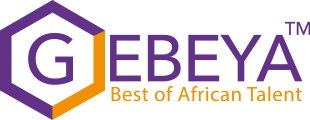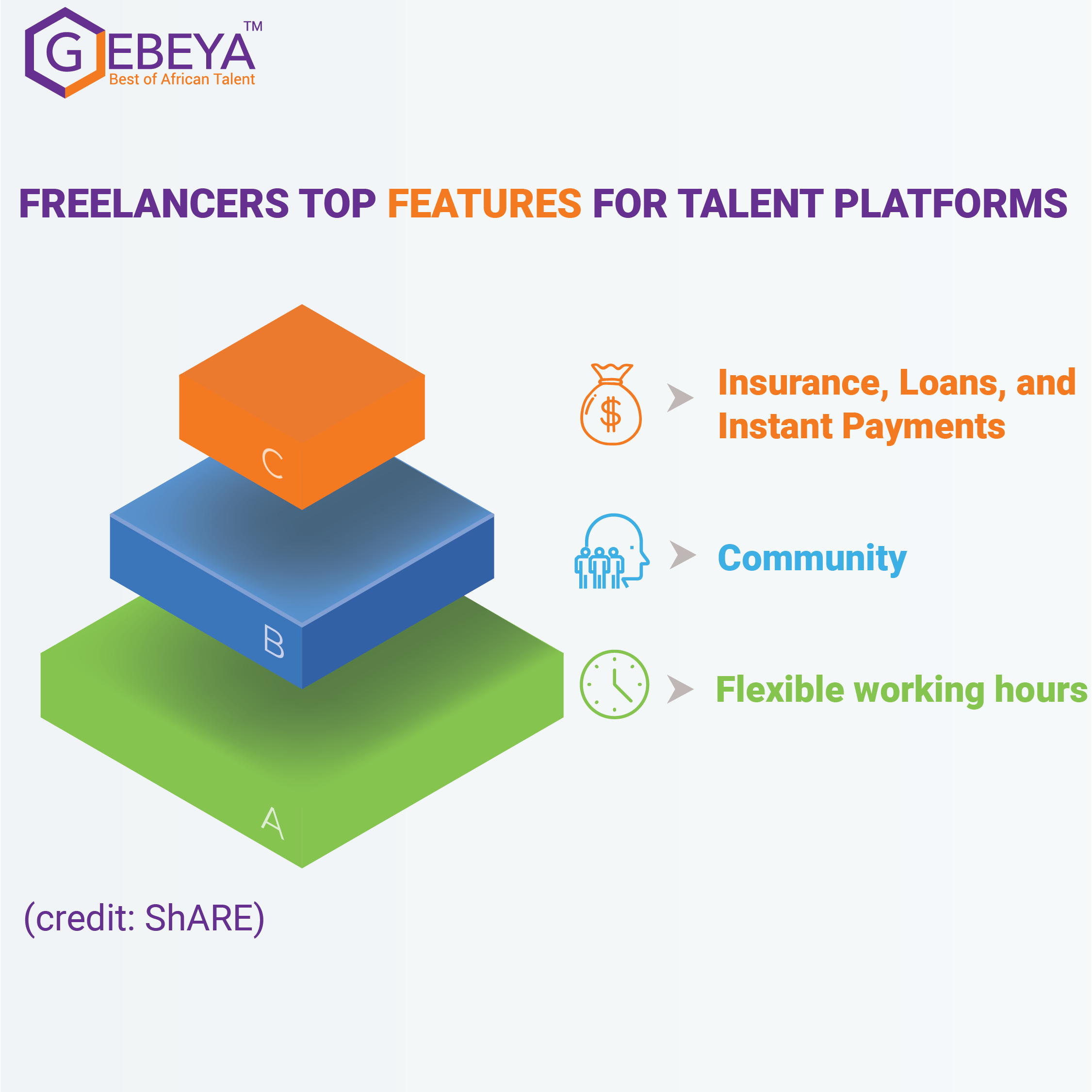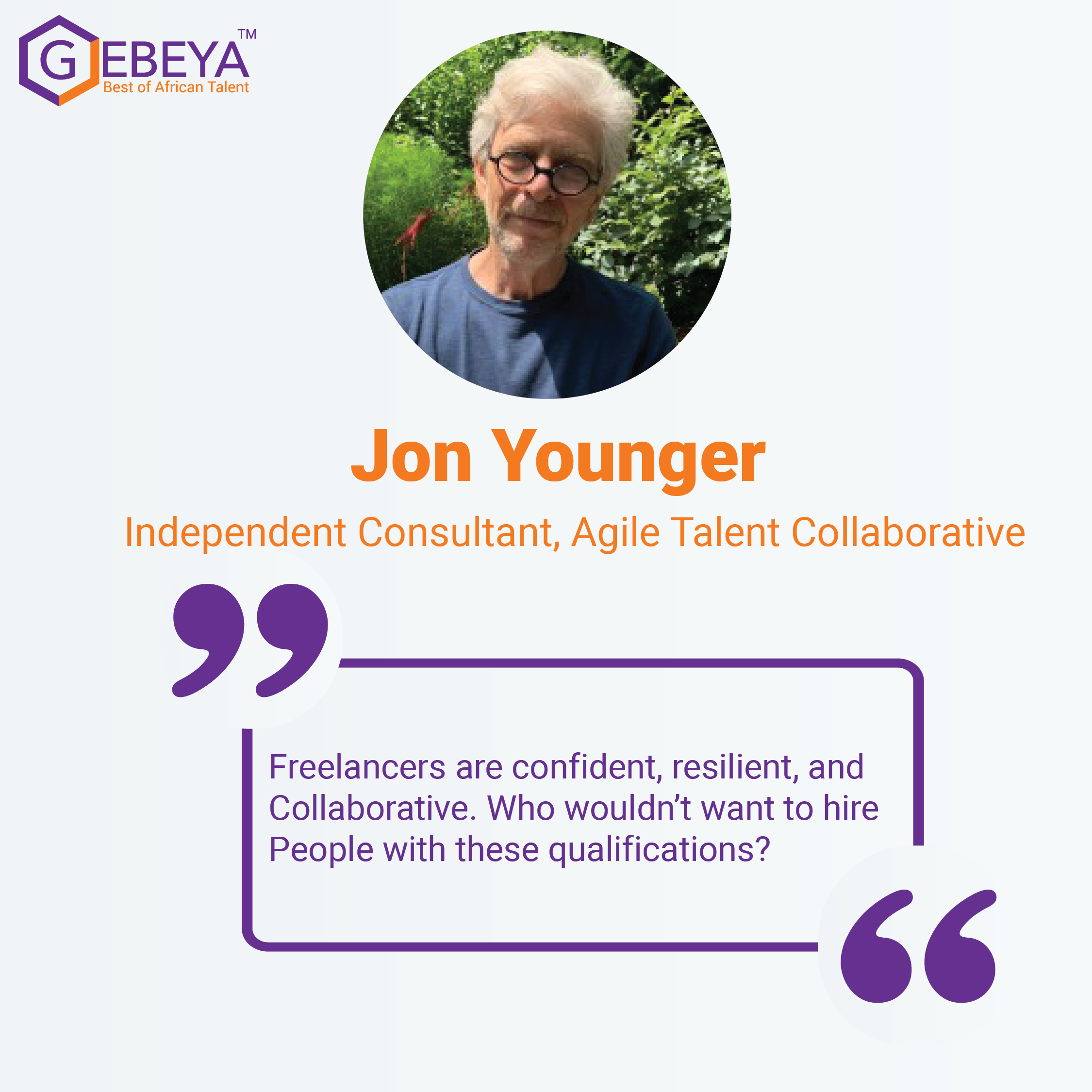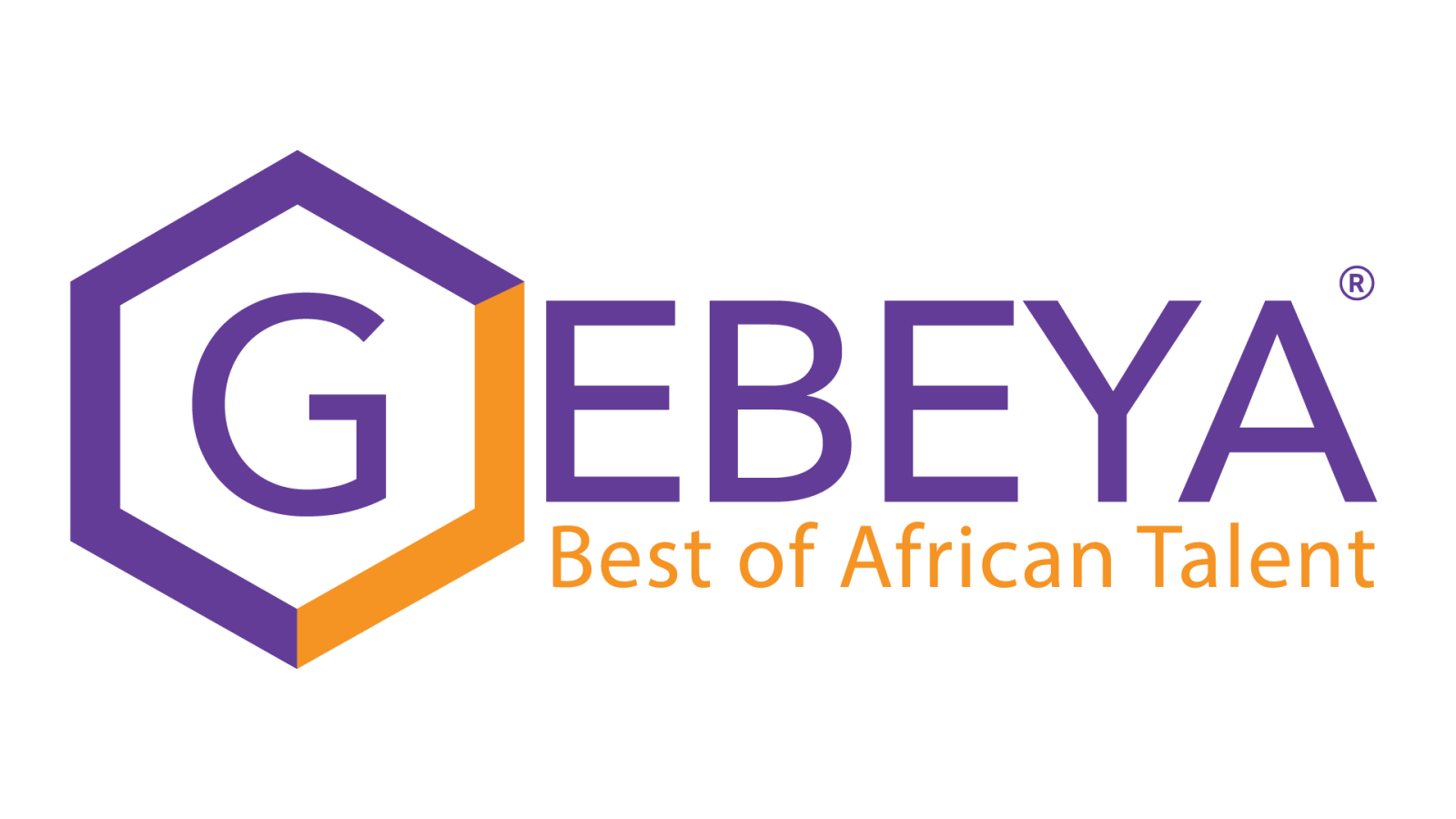Africa claims a small percentage of the global freelance market, but that’s rapidly changing. And with it, so are freelancer software developers’ expectations. The modern African freelance professional software developer expects much more than “just jobs” from their platform, according to multiple sources. Are today’s African platforms equipped to meet these expectations, or do they risk losing out to more-established competitors?
We surveyed our own talent pool at Gebeya, which includes thousands of professional freelancers across 30 countries and dozens of industries. Their sentiments echo much of what’s trending across the continent, with an acute interest in gaining independence, growing communication skills, and the importance of making an impact and contribution in their home countries.

Access Africa's Best Talent

Access Africa's Best Talent
A continental and global perspective
Last year, Gebeya talents engaged in a workshop led by Dr. Jon Younger, Forbes Contributor and champion of “The Freelance Revolution.” He co-led the Global Survey on Freelancing with researchers at the University of Toronto. That project included 1,900 participants from 77 freelance platforms, agencies, and professional communities in 30 countries. African talents represented 11% of respondents, including Gebeya.
Younger called Africa, “the newest continent to embrace freelancing,” and signaled a natural learning curve that includes platforms, freelancers, and employers co-evolving. What are some of the growing pains, according to African freelance software developers?
1. 50% don’t have enough work
2. 50% are frustrated by their experience freelancing in Africa
“Coopetition” over competition will benefit African Software Developers
To hyperscale the continent’s learning curve and bring more African freelancer software developers into the fold, Younger advocated for cross-platform cooperation. This includes freelance platforms finding ways to collaborate that benefit both parties, as well as the members who trust them. The top in-demand features that freelancers expect from their platforms include:
1. Upskilling and certifications
2. Financial support in the form of financing and micro-financing to purchase tech equipment or manage their personal affairs
3. Networking and mentorship
4. Access to global opportunities
This is a tall order, and the argument for an effective ecosystem to meet these needs in Africa is clear. As outlined in our blog on Africa’s Talent Wars, organizations and institutions must work together to strengthen and diversify talents’ skill sets, at speed.
Freelance software developers constitute more than 350,000 professionals across South Africa, Nigeria, Egypt, and Kenya, according to research from MBA Africa Connect. That’s one vertical in only four countries. The actual size of potential professional freelance software developers across the continent is exponential. If platforms and organizations on the continent fail to satisfy freelancers’ needs, a digital brain drain is inevitable.

Engagement, then marriage? The key to breeding loyalty in Software Developers
Are freelancers’ expectations of their platforms realistic? Like dating sites, many freelance platforms aim to address one core issue, and evolve to meet their users’ needs over the course of their lifecycle. As the mantra says, “evolve or die.” We propose: engage or die.
According to Younger, 10% is the industry standard for how much work freelance platforms provide to their populations; but engagement rates can range from 5-20%. This means that at any given time, up to 95% of freelancers on a given platform are dormant. How are they spending that time?
According to the global study, three-quarters of people who freelance do so part-time, which debunks the misconception that freelancers aren’t “good enough” to find full-time work. But African freelance software developer professionals have also built their own communities outside of platforms. This includes Meetup and Slack tech groups and communities for WordPress developers and women coders in countries like Kenya, Nigeria, and Cameroon, according to student research from ShARE.
Platforms have the opportunity to tap into this desire for community and mentorship by building a two-way street filled with irresistible perks and a feedback loop that will attract and retain top freelance software developers. At Gebeya, we push daily content about workshops and opportunities to our mobile app, Gebeya Talent; maintain a dedicated Slack community; share a biweekly newsletter; and will soon announce the launch of an online community platform.
The freelancers’ market opportunity to build it better
According to Younger, “freelancers need to understand their responsibility to be their own business with the support of the platform.” While platforms have much progress to make in their offerings for African freelancers—including localized payment options—professionals have the chance to define what that future looks like.
Much like African countries leapfrogged the path to financial inclusion via mobile money adoption (M-Pesa), African freelancer software developers can blaze their own trail in a nascent industry that’s still finding its footing. Freelance platforms across Africa stand to benefit, in the form of revenue, repeat freelancers, and leveraging the power of network effects.
But, only if they listen closely and react.


